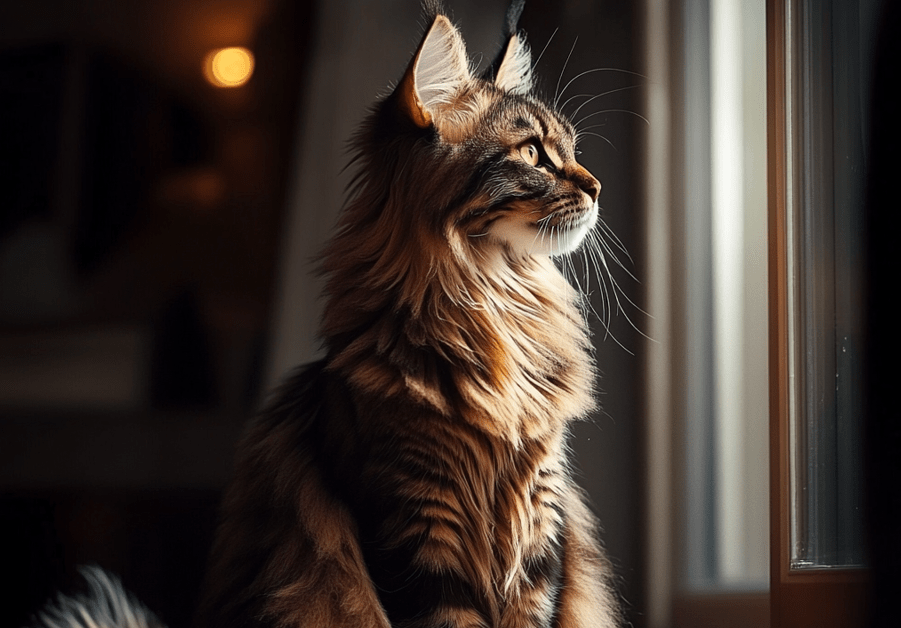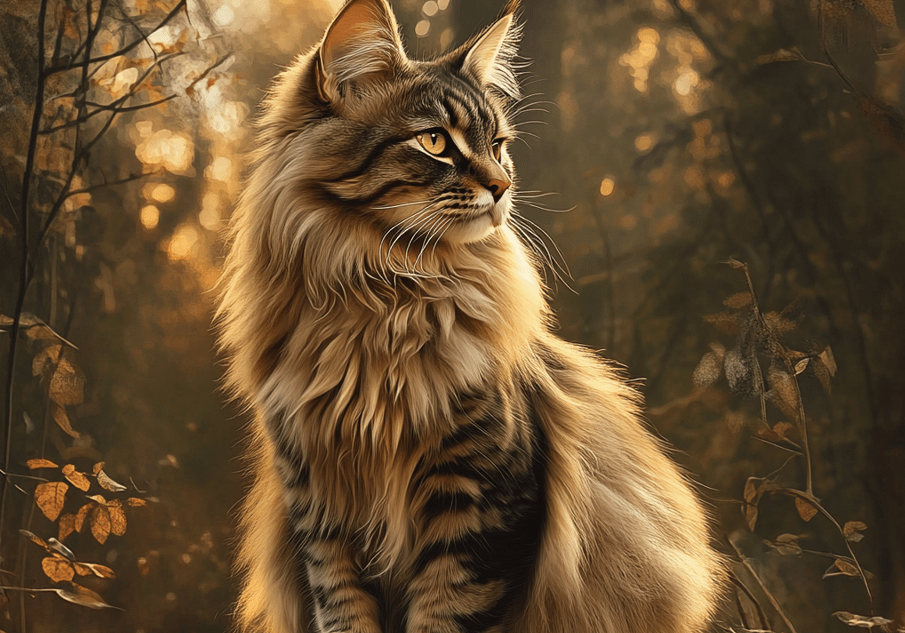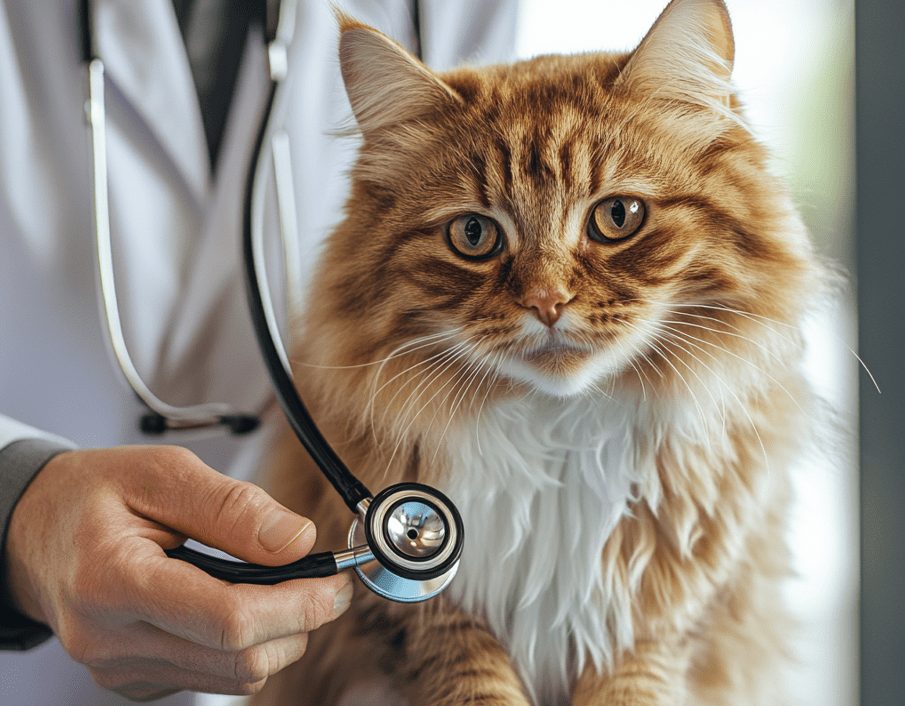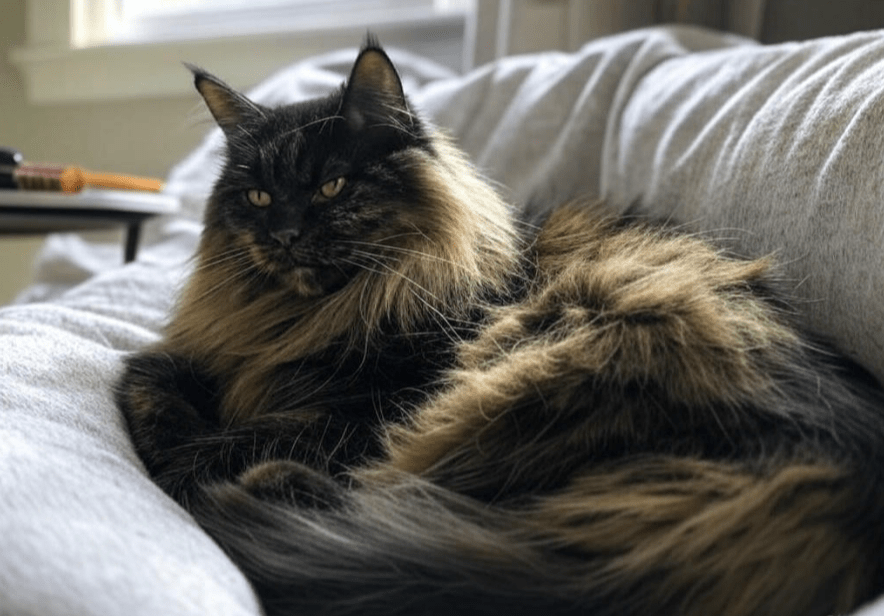
Maine Coon Cats, often referred to as “gentle giants,” are one of the most beloved cat breeds due to their large size, friendly personalities, and striking appearance. These majestic felines are known for their tufted ears, bushy tails, and sociable nature, making them a favorite among cat owners. However, like all breeds, Maine Coons are prone to specific health issues that can affect their quality of life if not addressed early. Understanding these conditions and learning how to spot them early is crucial for ensuring your Maine Coon lives a long, healthy life. In this comprehensive guide, we’ll explore five common Maine Coon health issues, their symptoms, causes, and proactive steps you can take to keep your feline companion thriving.
Why Maine Coon Health Matters
Maine Coons are a robust and hardy breed, often living 12–15 years or longer with proper care. However, their large size and unique genetic makeup make them susceptible to certain hereditary and lifestyle-related health conditions. Early detection is key to managing these issues, as it allows for timely intervention, which can prevent complications and improve outcomes. By familiarizing yourself with the signs of common Maine Coon health problems, you can ensure your cat receives the care they need before issues escalate.
This article dives deep into the most prevalent health concerns for Maine Coons, offering practical advice for pet owners. Whether you’re a new Maine Coon parent or a seasoned owner, this guide will equip you with the knowledge to spot potential problems early and take action.
1. Hypertrophic Cardiomyopathy (HCM)
What Is HCM?
Hypertrophic cardiomyopathy is the most common heart disease in cats and is particularly prevalent in Maine Coons due to genetic predispositions. HCM causes the heart muscle to thicken, reducing its ability to pump blood effectively. This can lead to heart failure, blood clots, or sudden death if left untreated.
Symptoms to Watch For
HCM can be challenging to detect in its early stages because cats are adept at hiding discomfort. However, there are subtle signs Maine Coon owners should look for:
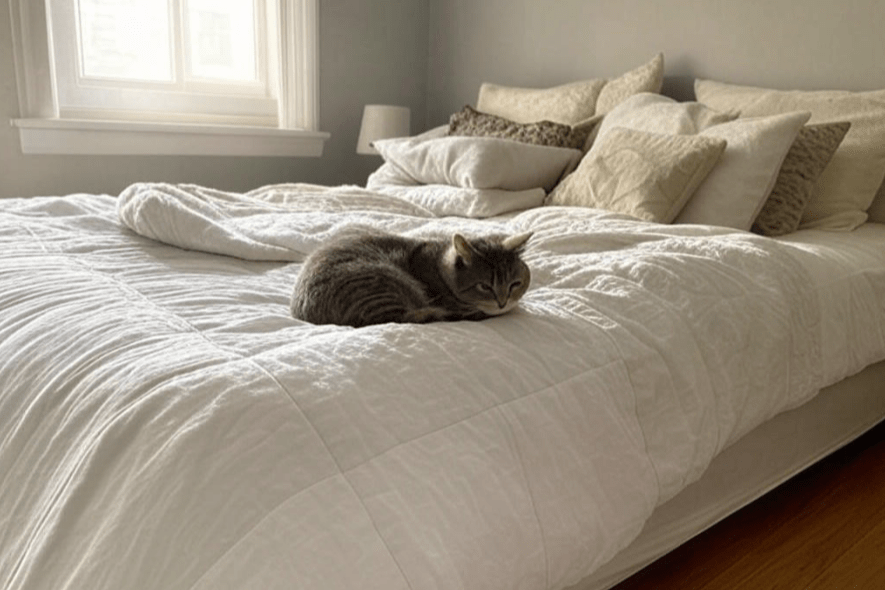
Lethargy or reduced activity: Your normally playful Maine Coon may seem tired or less interested in playtime.
Rapid or labored breathing: Watch for panting, open-mouth breathing, or difficulty catching their breath.
Fainting or collapse: Sudden fainting spells, known as syncope, can indicate heart issues.
Hind limb paralysis: Blood clots caused by HCM can lead to sudden paralysis or pain in the back legs.
Irregular heartbeat: A veterinarian may detect a heart murmur or abnormal rhythm during a checkup.
Causes and Risk Factors
HCM is often hereditary in Maine Coons, with a genetic mutation (MYBPC3 gene) linked to the condition. While not all Maine Coons carry this mutation, those that do are at higher risk. Other factors, such as obesity or stress, can exacerbate the condition.
How to Spot It Early
Regular veterinary checkups: Annual or biannual exams, including heart auscultation, can detect murmurs or irregular rhythms.
Genetic testing: Reputable breeders often test for the HCM mutation. If you’re adopting a Maine Coon, ask for genetic screening results.
Echocardiograms: If your vet suspects HCM, an ultrasound of the heart can confirm the diagnosis and assess severity.
Monitor behavior: Keep a log of any changes in your cat’s energy levels, breathing, or mobility to share with your vet.
Prevention and Management
While HCM cannot be cured, early detection and management can improve your Maine Coon’s quality of life. Treatment may include:
-
Medications like beta-blockers or ACE inhibitors to manage heart function.
-
A low-sodium diet to reduce strain on the heart.
-
Weight management to prevent obesity-related complications.
-
Stress reduction through a calm, enriched environment.
2. Hip Dysplasia
What Is Hip Dysplasia?
Hip dysplasia is a skeletal condition where the hip joint doesn’t develop properly, leading to a loose or misaligned joint. This can cause pain, arthritis, and mobility issues, particularly in large breeds like Maine Coons due to their size and weight.
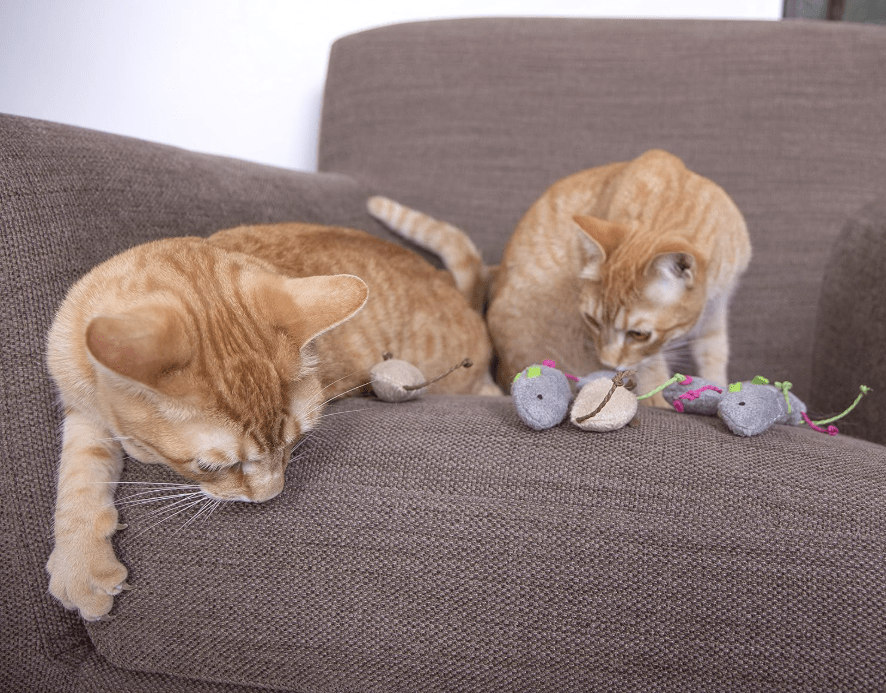
Symptoms to Watch For
Hip dysplasia symptoms may appear gradually and worsen over time. Look for:
Difficulty jumping or climbing: Your Maine Coon may hesitate to jump onto furniture or struggle with stairs.
Limping or lameness: A noticeable limp, especially after activity, can indicate joint pain.
Reduced activity: Reluctance to run, play, or engage in physical activities.
Muscle loss in hindquarters: The back legs may appear less muscular due to decreased use.
Pain or sensitivity: Your cat may react when touched near the hips or lower back.
Causes and Risk Factors
Hip dysplasia in Maine Coons is often genetic, though environmental factors like rapid weight gain or injury can contribute. Kittens that grow too quickly or are overfed may put excessive strain on developing joints, increasing the risk.
How to Spot It Early
Observe movement: Pay attention to how your Maine Coon moves, especially during play or after rest.
Veterinary exams: Regular checkups can include joint palpation to assess hip stability.
X-rays: If hip dysplasia is suspected, X-rays can confirm the diagnosis and evaluate joint alignment.
Weight monitoring: Keep your Maine Coon at a healthy weight to reduce joint stress.
Prevention and Management
While hip dysplasia cannot be prevented entirely, you can minimize its impact:
Maintain a healthy weight: Feed a balanced diet and avoid overfeeding to prevent excess strain on joints.
Provide joint supplements: Glucosamine and chondroitin can support joint health, especially in senior Maine Coons.
Low-impact exercise: Encourage gentle play to keep joints flexible without causing strain.
Pain management: Your vet may prescribe anti-inflammatory medications or pain relievers.
Surgery: In severe cases, surgical options like femoral head ostectomy (FHO) may be considered.
3. Polycystic Kidney Disease (PKD)
What Is PKD?
Polycystic kidney disease is a hereditary condition where cysts form in the kidneys, impairing their function over time. While PKD is more commonly associated with Persian cats, some Maine Coon bloodlines are also affected.
Symptoms to Watch For
PKD symptoms may not appear until the disease progresses, often in middle-aged or older cats. Be alert for:
Increased thirst and urination: Your Maine Coon may drink more water or use the litter box more frequently.
Weight loss: Unexplained weight loss despite a normal appetite can indicate kidney issues.
Lethargy: A lack of energy or reduced interest in activities.
Poor appetite: Refusal to eat or picky eating habits.
Vomiting: Occasional vomiting or nausea due to toxin buildup.
Causes and Risk Factors
PKD is caused by a genetic mutation passed down from affected parents. Maine Coons with a family history of PKD are at higher risk. Responsible breeders screen for PKD to reduce its prevalence in the breed.
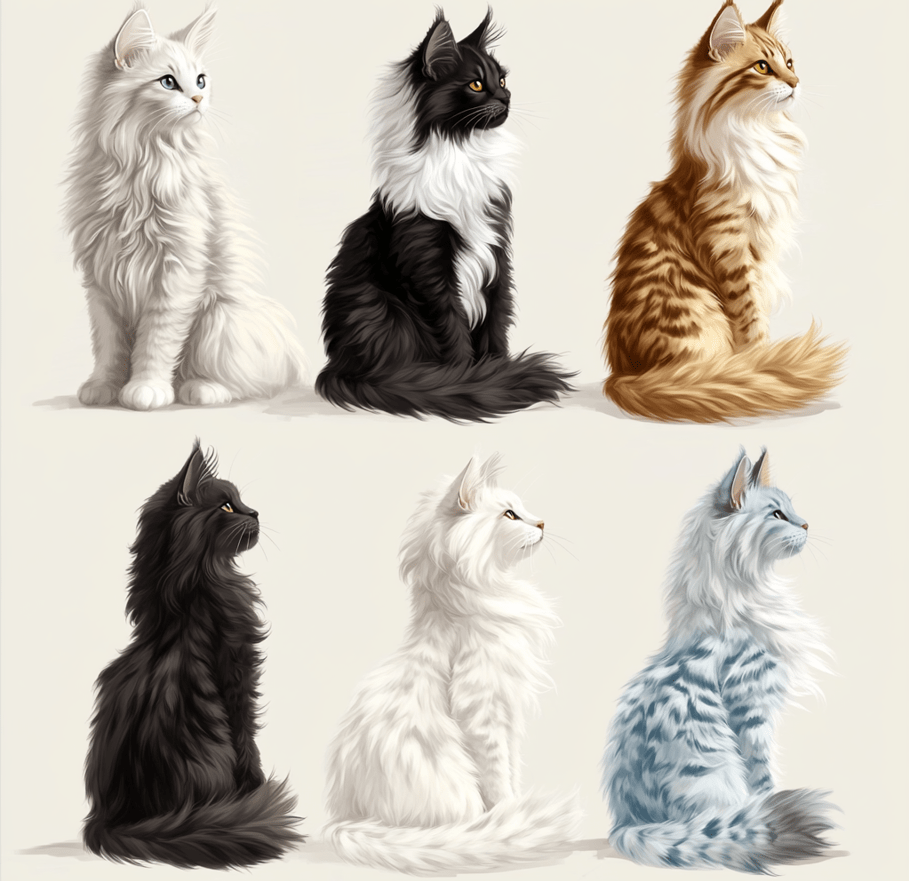
How to Spot It Early
Genetic testing: Ask your breeder for PKD screening results to confirm your Maine Coon is free of the mutation.
Ultrasound: A kidney ultrasound can detect cysts before symptoms appear, especially in cats with a family history.
Monitor water intake: Track your cat’s drinking and urination habits, as changes can signal early kidney issues.
Blood and urine tests: Regular lab work can assess kidney function and detect abnormalities.
Prevention and Management
There is no cure for PKD, but early intervention can slow its progression:
Regular veterinary monitoring: Annual bloodwork and ultrasounds can track kidney health.
Specialized diet: A kidney-friendly diet low in phosphorus and protein may be recommended.
Fluid therapy: Subcutaneous fluids can support kidney function in advanced cases.
Symptom management: Medications to control nausea or blood pressure may improve comfort.
4. Spinal Muscular Atrophy (SMA)
What Is SMA?
Spinal muscular atrophy is a rare genetic disorder that affects the motor neurons in the spinal cord, leading to muscle weakness and atrophy. While not as common as HCM or hip dysplasia, SMA is a concern in some Maine Coon populations.
Symptoms to Watch For
SMA typically appears in kittens or young cats. Signs include:
Muscle weakness: Difficulty standing, walking, or jumping due to weak hind limbs.
Tremors or shaking: Involuntary muscle tremors, especially in the back legs.
Unsteady gait: A wobbly or uncoordinated walk.
Muscle wasting: Visible loss of muscle mass in the hindquarters.
Normal behavior otherwise: Affected cats often remain alert and sociable despite physical limitations.
Causes and Risk Factors
SMA is caused by a recessive genetic mutation. Cats must inherit the mutation from both parents to develop the condition. Carriers of the mutation are asymptomatic but can pass it to offspring.
How to Spot It Early
Genetic testing: DNA tests can identify carriers and affected cats, allowing breeders to avoid producing SMA-positive kittens.
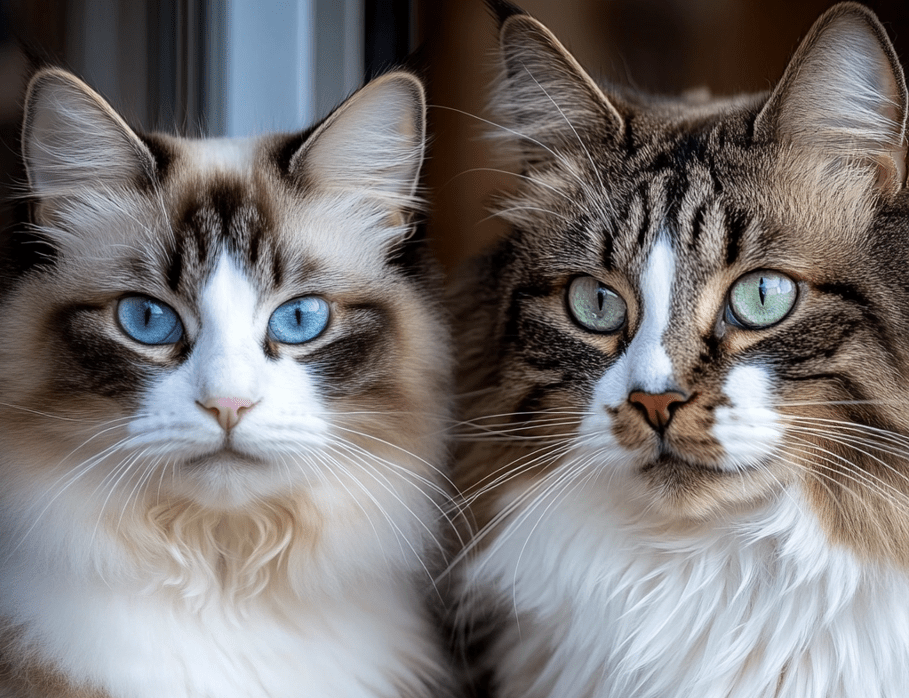
Observe kittens: Watch for early signs of weakness or tremors in young Maine Coons, especially from untested parents.
Veterinary evaluation: A neurologist can assess muscle function and confirm SMA through clinical exams or genetic testing.
Prevention and Management
SMA has no cure, but supportive care can improve quality of life:
Breeding responsibly: Avoid breeding carriers to eliminate SMA from Maine Coon bloodlines.
Physical therapy: Gentle exercises can help maintain muscle tone and mobility.
Safe environment: Provide a low-stress, accessible home with ramps or low perches for easy movement.
Regular checkups: Monitor for secondary issues like infections or weight loss.
5. Obesity and Related Complications
What Is Obesity?
Obesity is a common health issue in Maine Coons due to their large size and hearty appetites. Excess weight can exacerbate other conditions like hip dysplasia, diabetes, and heart disease.
Symptoms to Watch For
Obesity is easy to spot with regular monitoring. Look for:
Excess body fat: A lack of a defined waistline or difficulty feeling the ribs.
Reduced mobility: Reluctance to jump, climb, or play due to added weight.
Breathing difficulties: Heavy breathing or panting after minimal activity.
Lethargy: A general lack of energy or enthusiasm.
Grooming challenges: Difficulty reaching certain areas, leading to matted fur.
Causes and Risk Factors
Obesity in Maine Coons is often caused by overfeeding, lack of exercise, or free-feeding practices. Neutered cats and indoor Maine Coons are at higher risk due to lower metabolism and activity levels.
How to Spot It Early
Weigh regularly: Use a pet scale to track your Maine Coon’s weight and detect gradual gains.
Body condition scoring: Learn to assess your cat’s body condition using a 9-point scale (ask your vet for guidance).
Monitor eating habits: Note any changes in appetite or begging behavior.
Activity levels: A sudden drop in playfulness may indicate weight-related discomfort.
Prevention and Management
Preventing obesity is easier than treating it. Take these steps:
Portion control: Feed measured meals based on your Maine Coon’s ideal weight, not their appetite.
High-quality diet: Choose a balanced, protein-rich food formulated for large breeds.
Encourage exercise: Use interactive toys, laser pointers, or climbing trees to keep your cat active.
Veterinary guidance: Work with your vet to create a weight loss plan if needed, including calorie restrictions and regular weigh-ins.
Avoid free-feeding: Provide meals at set times to prevent overeating.
General Tips for Maintaining Maine Coon Health
In addition to addressing specific health issues, there are proactive steps you can take to keep your Maine Coon in top shape:
Regular Veterinary Care: Schedule annual or biannual checkups to catch issues early. Discuss vaccinations, dental care, and parasite prevention.
Grooming: Maine Coons have long, dense fur that requires regular brushing to prevent matting and hairballs. Check their ears, eyes, and teeth during grooming sessions.
Mental Stimulation: Provide enrichment through toys, puzzles, and social interaction to reduce stress and promote overall well-being.
Safe Environment: Ensure your home is free of hazards like toxic plants, small objects, or high perches that could cause injury.
Spay/Neuter: Neutering reduces the risk of certain cancers and behavioral issues, contributing to long-term health.
When to Consult a Veterinarian
If you notice any of the symptoms mentioned above—such as lethargy, difficulty breathing, limping, or changes in appetite—contact your veterinarian promptly. Early intervention can make a significant difference in managing Maine Coon health issues. Be prepared to share details about your cat’s behavior, diet, and lifestyle to help your vet make an accurate diagnosis.
Conclusion
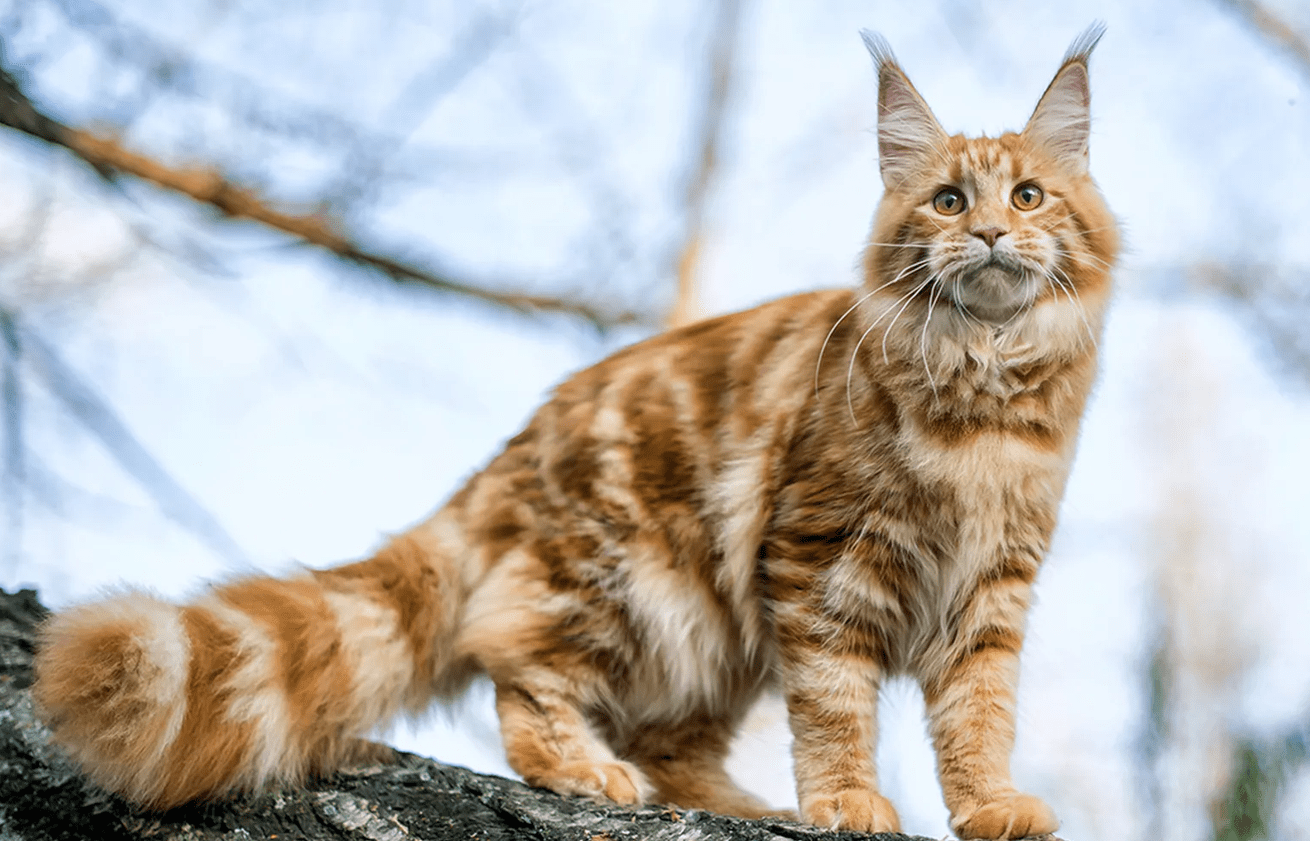
Maine Coon Cats are remarkable companions, known for their intelligence, loyalty, and striking beauty. However, their unique characteristics come with specific health challenges that require vigilance and care. By understanding the five common Maine Coon health issues—hypertrophic cardiomyopathy, hip dysplasia, polycystic kidney disease, spinal muscular atrophy, and obesity—you can take proactive steps to spot problems early and ensure your cat enjoys a long, healthy life.
Regular veterinary care, genetic screening, a balanced diet, and an active lifestyle are key to preventing and managing these conditions. With the right knowledge and attention, you can provide your Maine Coon with the care they deserve, allowing them to thrive as the gentle giants they are. Stay informed, stay observant, and give your Maine Coon the love and attention they need to live their best life.

